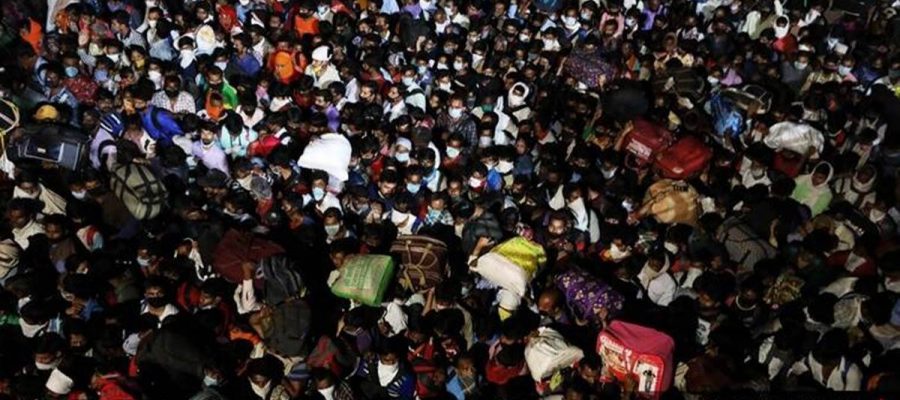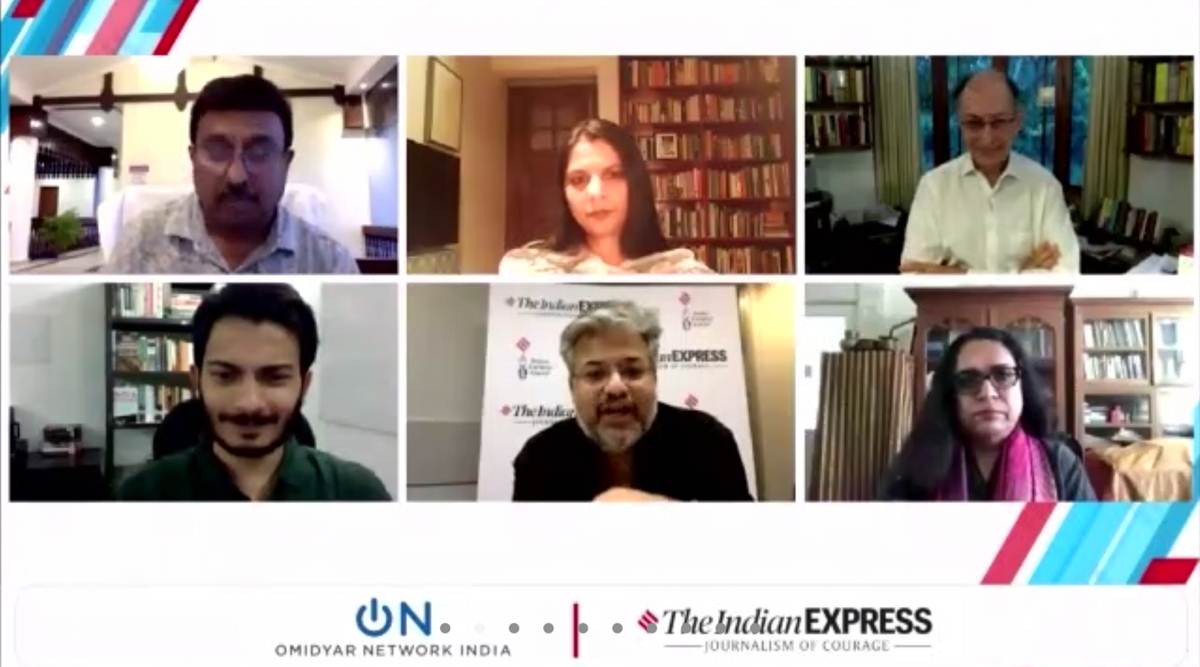On the Covid-19 lockdown in India, Tumbe said that while internal migration takes place in all countries, India was probably the only country that faced a massive migration crisis.
The recent laws in Jharkhand and Haryana that reserve private sector jobs for local residents are “nativist” and should be struck down, panelists said Tuesday at the second edition of the eight-part webinar series — Thinc Migration — organised by The Indian Express.
“Given that Jharkhand is a huge supply state of migrant workers to the rest of the country, how can it possibly have the legislation, who’s going to work in Jharkhand today? It’s people with skills you’d want to come into the state and create jobs locally,” Naushad Forbes, co-chairman, Forbes Marshall and former president, CII, said.
Forbes, also chairman of the Centre for Technology Innovation and Economic Research and Ananta Aspen Centre, also said, “If you have more people than employment, you’d want them to work somewhere else, earn money and send it back.”
Moderated by The Indian Express deputy associate editor Udit Misra, the panel discussionalso included Satyajeet Rajan, Additional Chief Secretary (Labour and Skills), Kerala; Yamini Aiyar, president and chief executive, Centre for Policy Research; Chinmay Tumbe, professor, IIM-Ahmedabad; and Priya Deshingkar, professor, University of Sussex.
Presented by Omidyar Network India, the discussion examined whether states are able to take care of those who migrate within their own borders.
It aimed to have a solutions-oriented discussion between some of the brightest minds and thought leaders across academia, industry, civil society and the government.
As for Haryana, Forbes said that it is a destination state because Gurgaon is a satellite city of Delhi and part of the NCR. “It’s a destination city, as opposed to a destination state. Someone was saying, ‘we will reserve jobs for locals’… it’s wrong, and it’s the kind of law that should be struck down by the Supreme Court. As an Indian, any of us has the right to go and live and work in any part of the country and be treated on par with anyone who has grown up in part of the country,” he said, adding that development for Indians, in the long run, would come when people move to cities permanently with their families, and become urban residents with political and voting rights.
On this, Rajan added that it doesn’t let a migrant become a part of the state. “The Bihari workers will be laughed at in Haryana and Punjab; they will never become a part of the states. There are similar problems in Kerala. There is a variation in the wages paid to the native workers and migrant workers. However, when the labour department comes to know, it immediately launches an investigation and set it right… Nativism will disappear when India comes to term with the fact that it is one nation,” he said.
Rajan said the destination state’s readiness and capability does not depend on its financial capability. “When a state wants to put its money on anything, they have the money. Unfortunately, migrant workers do not have a political voice… we should encourage and train them to become voters in the new state,” he said.
Building on that point, Aiyer said budgets are closely linked with the political voice — “specifically, the voice that the Indian diaspora has on what it thinks about the nation”.
“This was a disease that came in through the international borders and when we decided to shut them, we gave people three to four days to move around and return,” she said. “Even during the peak of the lockdown, Vande Bharat flights were moving up and down… however, the government didn’t do that for internal migrant workers. That’s fundamentally an issue of political voice.”
On the Covid-19 lockdown in India, Tumbe said that while internal migration takes place in all countries, India was probably the only country that faced a massive migration crisis. “So the first question is why did we get ourselves in this crazy situation last year when we had millions of people trying to go back home. The answer is, of course, that the lockdown was badly planned. There are more than 100 millions circular migrant workers, many of them daily wage workers leading very precarious lives,” he said.
Migrants heading home in a pandemic is not unprecedented, pointed out Tumbe, citing the example of migrants walking home in China when the authorities shut down the railways for them during the pneumonic plague in 1911. “Second, when the plague struck Bombay in the 1890s, the British actually had to make the same choice of shutting down the railway. So any policymaker has to take two things into account: how do we get migrant workers back home as quickly as possible, and how do we ensure social security for at least a few months,” he said.
Source: Read Full Article



